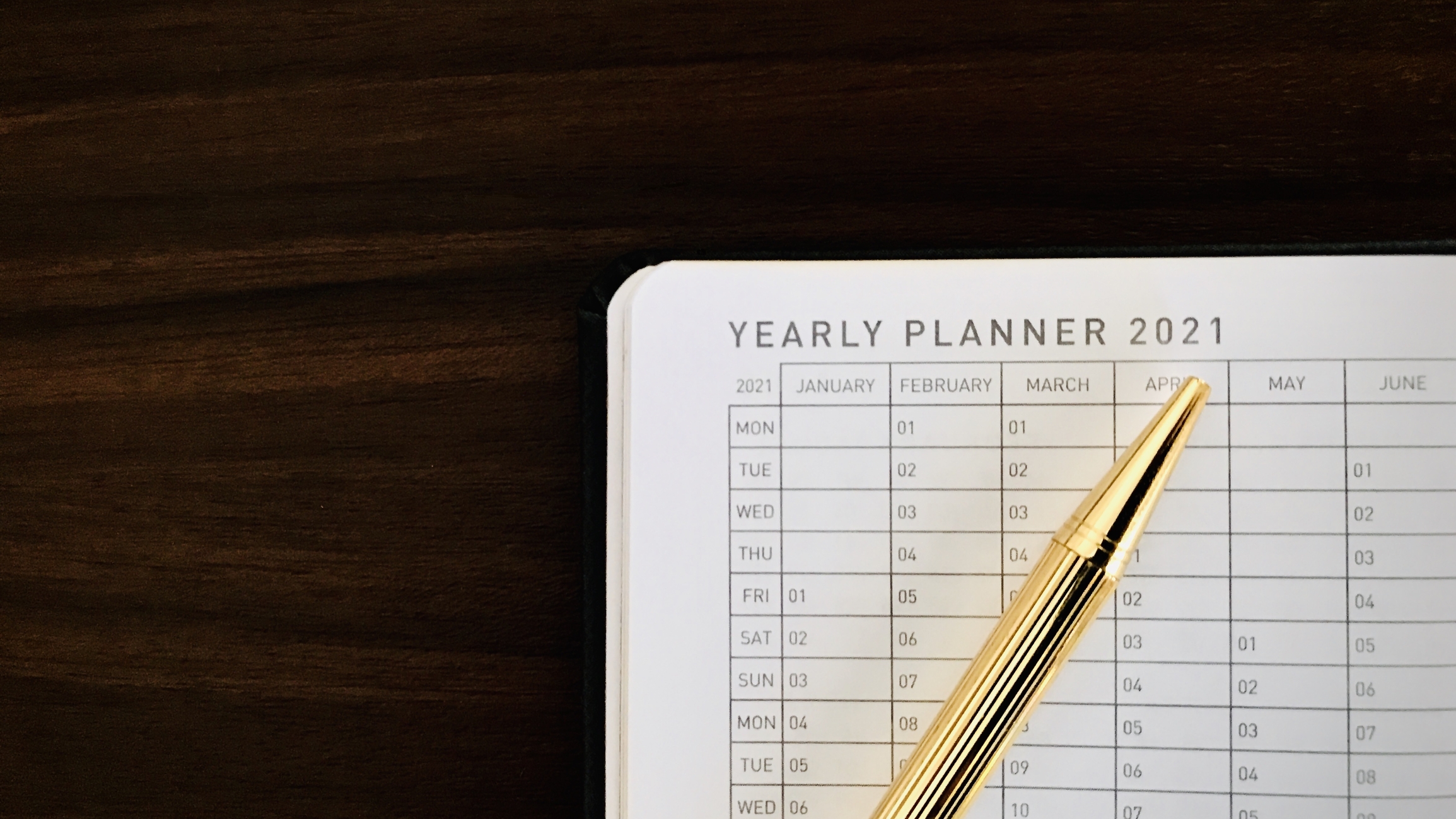When planning out your calendar think out six quarters. I frequently tell the story about managing my 18-month calendar, so I’m pretty well known for that level of planning and how freeing it’s been for me to create the habit of longer-range calendaring. Since many people have given me positive feedback on the process and my philosophy, I want to share some tactics on how to integrate more calendar planning into your life.
Believe it or not, the first things that go into my 18-month calendar are on a personal level: holidays, vacations, and big events like graduations and birthdays. You want to have those priorities on your calendar and protect that time. If you don’t protect these events, you’re not going to be able to participate in them the way you’d like to.
When you look at your calendar, you can say, “I have a trip to Ireland in April, let’s do that in May”. It actually allows you to be more flexible because you have the security of knowing the important things are already blocked off.
Next, move onto the professional items, big events at work – your budgeting and strategic processes, annual and quarterly reports and meetings, performance reviews, writing deadlines, project timelines and conferences. From a strategic sense, all of those repeatable items, those are what you should have on your calendar for a rolling 18 months. While you may not have specific dates for some of these activities – you should still include them. For example – if Strategic Planning has always occurred in October at your company, you can count on it happening at that same time.
It’s very interesting to analyze your year and see patterns emerge. You’ll notice there are certain times of the year where you are much busier than others. You’ll notice there will be times when you shouldn’t over-commit yourself because you want to do important things well.
A successful calendar will include open time each day in which you can be spontaneous. Over-scheduling yourself, may lead to lost opportunities for last minute meetings and then having to push important decisions out until you have open time. Too many of us keep important things from moving forward because we don’t have time to address them today.
Don’t minimize your need to refresh and recharge on a daily, weekly, monthly, and yearly basis. Each of us knows that we recharge and burn out in different ways and that different things relax us. if we schedule those breaks into our calendar, we will be more productive and refreshed at work. For some people, knowing that they have Fridays available in the summer to go up to their cabin frees them up to work hard for 4 days knowing that they will have several 3-day weekends.
If you know that you have a yearly bike trip, put it on the calendar and commit to it, then it’s not a question of whether you’re going to do it, or if you’re going to do it. The question becomes how you’re going to execute it. For most of us, although we know we have these desired commitments, they don’t become real until we put it on our calendar.
I know that for the next five to 10 years I’m going on a European trip for two weeks in April and I may be traveling to the National Parks (my wife and I have a goal to see all 58 National Parks) in two weeks in October. It’s very freeing to me to know that it’s already planned and that I don’t have to make time in my calendar. I just have to decide where I’m going to go.
I’m also committed to the Multiple Myeloma Research Foundation to annually walk and raise funds. I know that the fourth Sunday of each September for the next 10 years I’ll be participating. I don’t have to ask myself if I have time for it or not.
In order to do this 18-month planning well, you only need to spend 30-minutes a quarter and 30 minutes a week planning your upcoming week. I also recommend 30 minutes to an hour once a month for monthly planning. If you commit to that planning time, you’ll realize that you end up ahead because you’re in control and not constantly reacting without important details in place. The other day I was asked about next year’s calendar and it was easy for me to commit to the specific date they had in mind. That helps me have control and it’s really freeing.

I love this idea and I have felt the same way for a long time. My mistake is that I dont commit my schedule in writing. Already, I am thinking of a destination Christmas in 2022 – just a little under 18 months away!